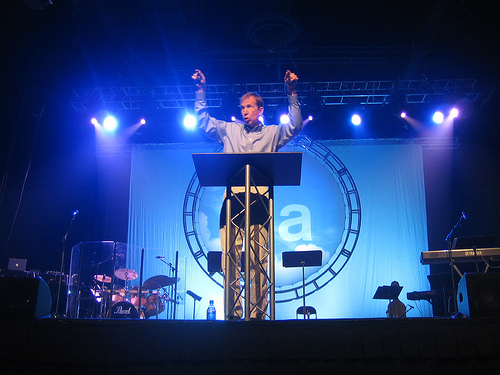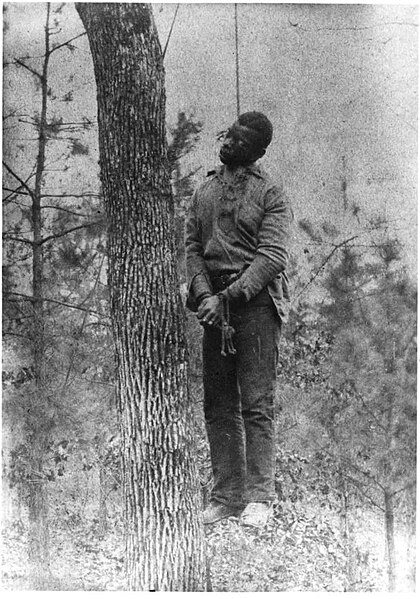It's been a great privilege and joy to preach through Genesis over the past few weeks, considering Abraham's life, faith, and God's work of redemption. This past Sunday, we meditated on Genesis 19:30-21:21. During the prep, I enjoyed reading some of Jim Boice's sermons in this area. Here's something that helped me personally but was left on the cutting room floor Sunday morning.

The cause of Abraham's sin was lack of faith in God. He did not believe that God could take care of him in this new situation. But of primary interest in this episode are the consequences of his lack of faith--first, in regard to Abraham, and second, in regard to God.
So far as Abraham is concerned, the lack of faith disturbed everything. We sometimes think of our lives as existing in separate, watertight compartments, so that a sin in one area does not necessarily affect another. But life in not like that, and the situation of Abraham shows what is actually the case. When Abraham began to doubt God, thinking less of him than he should have thought, his view of himself was also altered, for he began to think more of himself than was proper. It was the old principle of the seesaw in theology. So long as our view of God is up, our view of ourselves will be down. God will be sovereign, wise, and holy. We will see ourselves as weak, foolish, and sinful. But if our view of God goes down, so that he becomes less than sovereign in our thinking, then our view of ourselves will go up and we will begin to imagine that we are generally quite able to take care of ourselves. This is what Abraham imagined. Thinking the God could not take care of him, he assumed that he would have to take care of himself, and this got him into the foolish predicament of this episode.
More than this, as his opinion of himself rose, his sensitivity to other people declined, and he began to look down on them when he did not have any reason to do so. We see this in his attitude to Abimelech. When Abimelech caught him in his deception, Abraham replied, "I said to myself, 'There is surely no fear of God in this place, and they will kill me because of my wife'" (v. 11). this was a slander on Abimelech. Abimelech had a great deal of reverential fear for God and a very commendable sense of right and wrong. Abraham was blind to this because of his own foolish pride and disobedience.
Abraham's lack of faith disturbed everything so far as he was concerned. Yet--this is a glorious point on which I end--Abraham's lack of faith disturbed nothing so far as God was concerned. Abraham may have doubted God's ability to take care of him, but God's ability to do so was not altered in the slightest. He may have doubted God's grace, but God remained as gracious as he had ever been.
I am especially impressed by the way God showed his grace to Abraham. God did so when he spoke to Abimelelch. When Abimelech learned the truth about Sarah, he must have thought of Abraham as a cowardly, hypocritical, two-faced charlatan--or worse. He had cause to. but this is not the way God spoke of Abraham to Abimelech. God said, "Return the man's wife, for he is a prophet, and he will pray for you and you will live" (v. 7). God was not indifferent to Abraham's sin. He would deal with it as he had on the occasion of its appearance in Egypt. But the sin did not change God's view of Abraham. Abraham was still "a prophet." He was still God's man.
Moreover, in all the references to Abraham that we have in the remainder of the Bible, never does God bring up this incident as if to highlight Abraham's failure--not in Romans, not in Galatians, not in Hebrews 11 (where the faith of Abraham is discussed at great length). In that last passage, Abraham is praised for the faith he showed in four situations: (1) leaving Ur for an unknown, promised land, (2) staying in the land even in times of great deprivation and danger, (3) believing that God could give him a son when he and Sarah were past the age of having children, and (4) being willing to offer up Isaac, counting that God could raise him from the dead. Not once in all this great survey of Abraham's progress in the life of faith does God refer to his past sin as if to shame him by a remembrance of it. It was forgiven and gone. It was forgotten.
It is good to serve a God like that, a God who remains sovereign even when we doubt his ability to care for us, a God who remains gracious even when we sin. to serve a God like that is this world's greatest joy and opportunity. To know that he is like that is the greatest incentive you will ever have to keep from sinning.


 Post 1:
Post 1: 


 6. Diligence. Show that you are not sluggish and servant to ease. Keep out idle thoughts from your mind. Do not waste precious time. Diligently carry out occupation.
6. Diligence. Show that you are not sluggish and servant to ease. Keep out idle thoughts from your mind. Do not waste precious time. Diligently carry out occupation.



 Since my conversion at age 19, I have had many opportunities to share my testimony. The story of how my hatred toward other men was broken by the power of God has been featured on a couple television shows including the 700 Club. My testimony was once printed in The Messianic Times which is distributed in the United States and throughout Israel. And I’ve share it briefly on this website, in churches, and on the streets with people I have witnessed to.
Since my conversion at age 19, I have had many opportunities to share my testimony. The story of how my hatred toward other men was broken by the power of God has been featured on a couple television shows including the 700 Club. My testimony was once printed in The Messianic Times which is distributed in the United States and throughout Israel. And I’ve share it briefly on this website, in churches, and on the streets with people I have witnessed to.






 General-session titles and speakers
General-session titles and speakers









